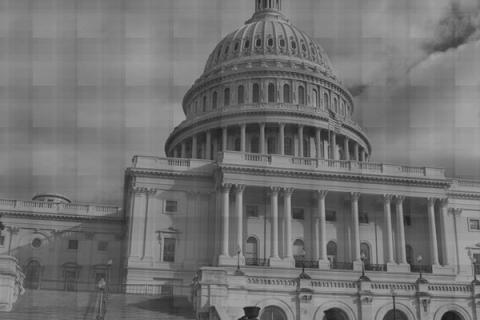
Wisconsin has been in the national spotlight over the past two years as Governor Walker's legislative agenda shook up the Badger State, drastically cutting the state's budget and ending collective bargaining rights. Between the massive protests and multiple recall elections, the nation's eyes have watched Walker survive multiple challenges and climb into the beloved ranks of the Republican Party. Following this national acclaim, his name is now being floated for a possible 2016 run for the presidency. Walker has backed up the hype by traveling around the country to places like the Reagan library to make broad and sweeping policy speeches, a necessary stop for any possible presidential candidate.
On Tuesday night, Governor Walker used his State of the State address to outline his agenda for the coming year, including mining, regulatory reform, tax cut, and education reform. Multiple times, Walker proclaimed that “We're turning things around. We're heading in the right direction. We're moving Wisconsin forward,” and cited job growth and a budget surplus as signs of the progress he has made in the state.
Walker is poised to indeed move forward with his agenda, largely unencumbered by legislative roadblocks. While Wisconsin voted heavily Democratic in the national elections, favoring Barack Obama and bringing Tammy Baldwin, the first openly gay Senator, to Congress, the state elections swung toward the Republican Party. On the back of the Republican-led redistricting efforts, both houses in the state legislature now possess Republican majorities. Therefore, there will be little in the way stopping the Walker-led agenda.
the state’s slow economic recovery, including “Wisconsin lag behind most of the country in job creation. Governor Walker remains a far cry from his 250,000 jobs pledge, and his own staff admits ‘we’re bad’ when it comes to critical economic indicators.”Democrats, in the meantime, generally came out in opposition to the legislative agenda, as well as the rosy picture Walker painted of the state’s conditions. For example, State Rep. JoCasta Zamarripa stressed that the state has “ranked second in cuts to public education and third in cuts to our university system. Assistant Assembly Democratic Leader Sandy Pasch also highlighted
With the political earthquakes in the state over the past few years, the moderate and civil politics of Wisconsin harkened back to divisiveness and extremism of Wisconsin’s darkest political period of Joseph McCarthy, a Wisconsin native, and his red-baiting sensationalism in the late 1940s and 1950s. Many Wisconsinites, however, long for the bipartisanship that historically allowed the state to the lead the country in reform and forward-thinking legislative agenda setting.
An editorial in the Apple Post-Crescent captures this viewpoint: “In both the budget and in other legislation, there will naturally be differences of opinion — and that’s not bad. But a more bipartisan approach by the Republicans” would be beneficial to both the state and the legislative agenda. The editorial ended expressing the frustration of an entire state, since “the Wisconsin public has also said that it’s tired of the constant conflict in Madison. It expects those elected to office to be leaders.” The mix of the electoral constituency is evident by both party’s representation in both national and state offices. The badgers are looking for sensible solutions, not just more partisan bickering.
